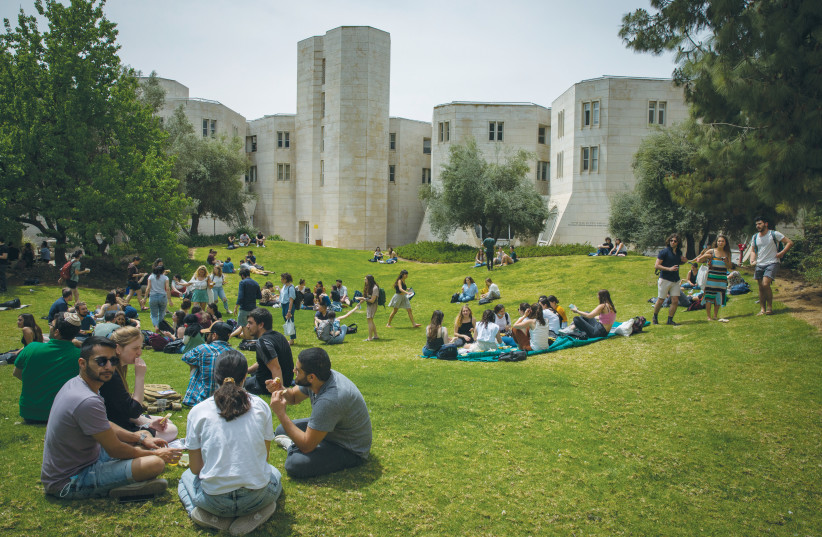Israeli academic institutions unveiled a two-phase plan for the academic year’s start on Sunday, designed to accommodate both regular students and reservists, in an attempt to address the demands of both the students and the military.
Despite these efforts, reservists have rejected the plan, deeming it inadequate. Aviv Astrook is a 24-year-old student at Afeka College and a reservist in the combat engineering corps. She, along with many others, found the solution lacking, and threatened to protest.
The plan, a result of extended discussions with the IDF, set the year’s start for December 31, significantly delayed from the original date. This marked an end to a series of postponements, totaling five, with previous dates set for October 22, November 5, December 3, and December 24. The ongoing conflict and the delay in the widespread release of reservists meant that university heads eventually concluded that further delays would make a semester impossible.
The proposed solution includes an additional “phase” for opening the year, featuring a material catch-up marathon. The Council of University Heads and the Council of Colleges, after failing to secure a commitment for troop release by January 21 from the IDF chief reserve officer, refrained from announcing a specific start date.
Universities like Ben-Gurion, Hebrew University, and Tel Aviv University, however, have indicated that this opening of the academic school year is likely to begin on this date, although the exact timing of reservists’ release remains uncertain.
Astrook criticized the plan vehemently, saying that “reservists returning from three months of operational activity to a rushed academic catch-up is insane. It demonstrates a severe misunderstanding of the situation by the institutions. They aren’t in touch with the fighters and fail to grasp their circumstances. Many are mentally strained; this approach is unfeasible. The decision-makers are out of touch, thinking they know our needs. Reservists require personalized support and gradual reintegration with psychological assistance, not just a one-size-fits-all catch-up program.”

The institutions have pledged support for students returning from combat, but reservists like Astrook remain doubtful. Through her Instagram protest page, titled “The Struggle of Students in Uniform,” she voiced the collective anxiety, relaying thousands of messages from concerned reservists across various institutions.
They expressed skepticism towards the institutions’ promises, fearing inadequate support and the burden of self-reliance. Astrook highlighted the profound impact this has on reservists, predicting high failure rates and increased dropout from studies.
She also underscored the disillusionment amongst reservists, fearing that the sacrifices of enlisting are not being duly recognized or compensated.
Trying to do school work while on active duty
The situation’s severity is also evident in the stories of soldiers attempting to study amidst active duty.
Another student, named Shahar, recounted an incident where a fellow soldier while guarding an armored vehicle in Gaza, sought to revise the year’s academic material. Astrook echoed similar experiences, highlighting the impracticality and immense difficulty of such endeavors.
Though many reservists explained that they understood the necessity of continuing the academic year for economic, professional, and symbolic reasons, they questioned the chosen approach.
While academic officials believed the current plan is the lesser of two evils, born out of deep consideration for student welfare, Astrook and her peers said they felt that not all options have been thoroughly explored.
They pointed to institutions like the Technion, Azrieli College, and Shamoon College of Engineering, which opted for additional delays in line with the IDF’s request, as examples of more considerate approaches.
